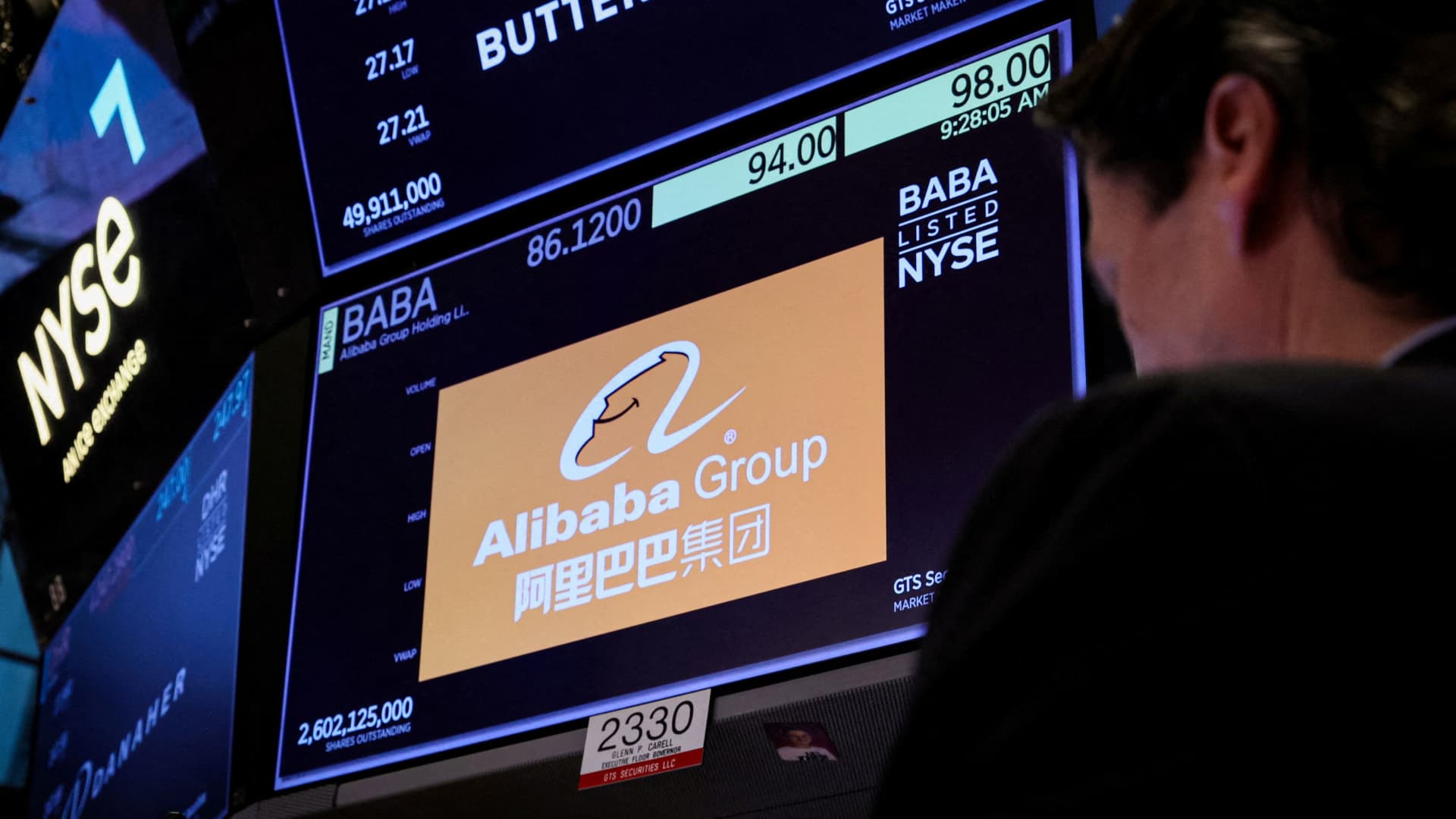Products You May Like
Chinese e-commerce giant Alibaba is back on track to be a top market player after a period of pressure, co-founder Joe Tsai told CNBC’s Emily Tan in an exclusive interview Friday.
Questions about Alibaba’s future have mounted after a series of internal changes, a scrapped cloud computing IPO and competition for its core e-commerce business.
The long-time behemoth in China’s online shopping world has in recent years faced greater competition as cost-conscious consumers turn to lower-priced goods from PDD Holdings, and amid the rise of livestreaming sales on Douyin, China’s version of TikTok that’s owned by ByteDance.
“Now with the restructuring and with the new management in place, we feel a lot more confident in placing as one of the top e-commerce players in China,” Tsai said. “Where we didn’t feel as confident as before, we felt the competitive pressure, but now we’re back.”
He also expects the penetration of e-commerce in China to exceed 40% in the next five years, up significantly from the current 30% level.
Tsai has been part of Alibaba since its founding in 1999. He became chairman of Alibaba in September as part of a leadership reshuffle.
Eddie Wu became CEO of the company at the same time, replacing Daniel Zhang, who had also held the chairman role. In December, Wu took over as head of the Taobao and Tmall e-commerce business from Trudy Dai.
The management shakeup followed an overhaul of Alibaba’s business last year that split the company into six business groups, with an eye to list them publicly starting with the cloud unit.
However, Alibaba in November pulled plans for a cloud IPO, citing U.S. chip export curbs. Zhang was originally supposed to stay on as head of the cloud business but abruptly quit the company in September.
Tsai said a cloud IPO would have made more sense if investor sentiment was higher.
“Markets haven’t been great,” he said. As for an IPO of Alibaba’s Cainiao logistics business, he said the company was waiting for better timing.
Cainiao filed for a public offering on the Hong Kong Stock Exchange in September, but has yet to list.
In the last several months, Tsai and fellow co-founder Jack Ma have bought more than $200 million worth of Alibaba shares between them.

Alibaba’s U.S.-traded shares have barely changed for the year so far, trading at around $76 — a fraction of its stock price of about $300 in November 2020.
That same month, the company’s fintech affiliate Ant Group’s IPO was abruptly suspended by Chinese authorities. Beijing later fined Alibaba for alleged monopolistic behavior.
Since then, the company has faced increased competition amid slower growth in China’s economy. PDD Holdings, which owns Pinduoduo and Temu, temporarily saw its market capitalization surge past Alibaba’s.
When asked about the success of China-affiliated e-commerce players like Temu, Shein and TikTok in the U.S., Tsai said the companies offered “a great consumer proposition” due to “high quality” products and “reasonable prices.”
“They’re very aggressive doing it and we’re going to observe and figure out what we want to do,” he said, noting Alibaba already sells overseas through AliExpress and Trendyol, which focuses on Turkey.
As for U.S.-China tensions, Tsai said the two governments have realized they need to work together in certain areas despite fierce competition, something Alibaba would have to learn how to deal with.
Although Alibaba no longer plans to spin off its cloud business, the company remains intent on building up its artificial intelligence capabilities and making money from cloud computing.
E-commerce, Tsai said, offers “one of the richest use-case scenarios, or brings the most variety, in terms of use cases for using AI applications.” They include the ability to quickly create product catalogs for consumers, as well as virtual dressing rooms for clothes, he added.
